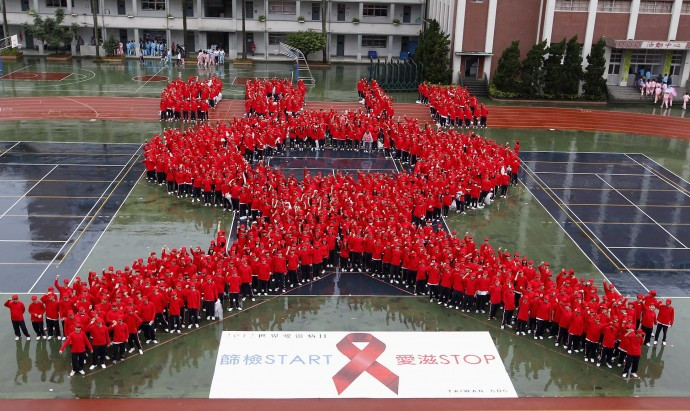Could the fast-acting immune systems of babies pave the way to a HIV vaccine?
Broadly neutralising antibodies appear quicker in children's blood than in adults'.
Babies' immune response to HIV may be a lot faster than adults', scientists have discovered. Studying the way infants' antibodies develop to target the virus could offer clues to come up with an effective vaccine.
Up to now, attempts to create an anti-HIV vaccine have not been very successful. An HIV infection can lead the immune system to create broadly neutralising antibodies to fight off the different HIV viral strains in infected adults, but this response can take years to develop. A vaccine designed to mimic this natural immune response would similarly take a long time to build protection.
This is problematic, because for a vaccine to be deemed effective it has to act relatively quickly to trigger an immune response with the right mix of antibodies.
"In order to be practical, an HIV vaccine – like all the other vaccines currently available – needs to trigger an effective response within months, not years", says senior researcher Dr Julie Overbaugh, from Fred Hutchinson Cancer Research Center.
Her study, published in Cell, now reveals that a quick immune response could actually occur in very young children. It could potentially form a template for a future HIV vaccine.
Different path from infection to protection

The research – the first to isolate HIV-neutralising antibodies from blood samples of infected infants – focused on the case of one baby who was HIV-negative at birth but infected by four months of age.
The researchers found that broadly neutralising antibodies arose in the infant's blood within a year of infection. "We could document a case in infants where a broadly neutralising antibody developed in a time frame and in a way that is something that we could consider mimicking with a vaccine," says Overbaugh.
Another interesting finding was that the infant's blood contained more than one antibody contributing to the HIV neutralising activity – something known as a polyclonal response. In contrast, adults appear to produce an immune responses dominated by a single specific antibody.
The infants' response may thus be more effective because polyclonal antibody responses are harder for viruses to elude, making them more likely to protect against a wider range of variants. "I think for a vaccine we'll do way better if we can elicit a polyclonal response," Overbaugh points out.
She and her team also found that the infant broadly neutralising antibodies could bind to a different site on HIV virus compared with adult antibodies – again suggesting a different path from infection to protection in young children.
Steps towards a vaccine
The immune response produced by infants suggests that a fast-acting, effective HIV vaccine could be created, but many interrogations remain. It is not clear whether the infant broadly neutralising antibodies differ due to differences in the types of HIV variants infants encounter or because of unique characteristics of infant immune systems.
The team is confirming its findings in another research. It will then conduct further research to determine what causes children to have a faster immune response and whether it can be reproduced in a vaccine.
© Copyright IBTimes 2025. All rights reserved.




















